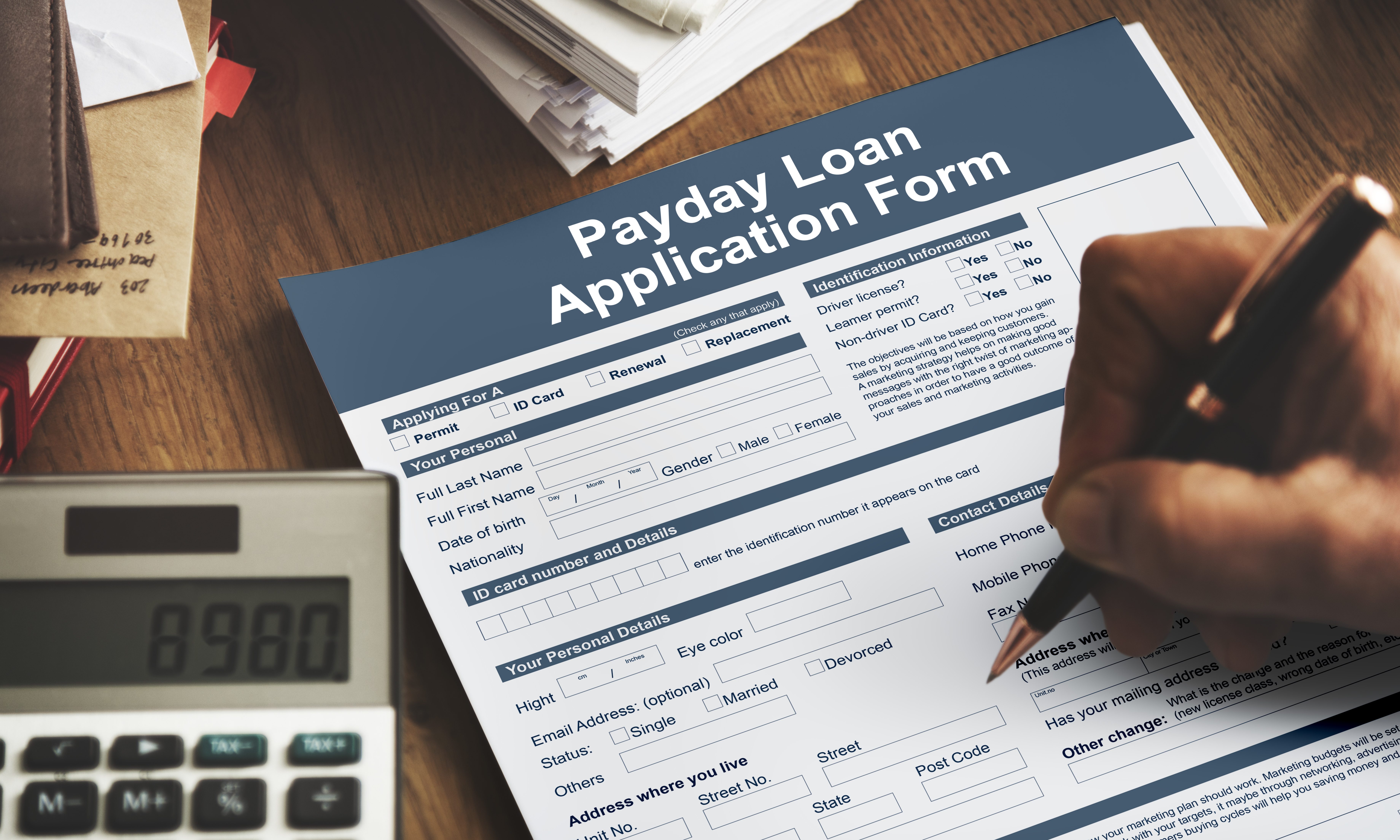By Chip Brownlee
Alabama Political Reporter
Those hoping to reform the payday lending industry marked down a win Thursday when the Senate passed a hotly debated bill that would extend the repayment period for the typical payday loan, giving borrowers more time to repay their loan without racking up excessive interest.
The move will effectively cut the annual percentage rate from 456 percent down to a 220 percent APR, said the bill’s sponsor Sen. Arthur Orr, R-Decatur.
The typical cash-advance loan in Alabama currently has a repayment period of 14 days, though some are as short as 10 days, giving those who choose to take out one of the short-term loans two weeks — modeled after the standard pay period — to pay back the money they borrowed.
The new bill will set a minimum repayment period of 30 days.
“It’s just to extend the loan term, like your car loan, like your credit card payments, like your mortgage payments, on a 30-day track,” Orr said. “People are used to a 30-day cycle for all of the other short-term debts that they have and their long-term debts. It’s certainly something that will be more manageable for consumers.”
Senators approved the measure by a vote of 20-4 after a heated debate between Orr and another Republican who was initially opposed to the bill.
Sen. Tom Whatley, who ended up voting yes on the bill, attempted to filibuster the bill. He said extending the repayment period could cause more loans not to be repaid, in turn hurting payday lenders.
“I firmly believe that the idea is to drive this lending source out of business through government regulation,” Whatley said.
The Auburn Republicans said the government should focus on reducing the demand for the loans — through education and bettering economic conditions in the state — instead of blocking the loans themselves.
Whatley said many of those who are against payday lenders really just want to get rid of the storefronts.
“If it was a lending institution that was in a nice, pretty 20-story building, then it wouldn’t be as much of an issue,” Whatley said. “If you don’t solve the demand, there is still going to be a lender of last resort.”
Those in need of the money typically have already exhausted other forms of credit, if they were able to get it at all, and will find other ways to get a loan if they can’t find a payday lender, Whatley said.
“All it does is shift it to overseas lending. It shifts it to people who are not tracked by the state of Alabama, they’re not authorized lenders, but they do lending,” Whatley said. “Those people don’t do interest rates, they charge an arm and a leg, a literal arm and a leg.”
Despite Whatley’s concerns, Orr said he didn’t believe payday lenders would go out of business.
“You look at a state, like Maine or Colorado, states that have lower APR rates, and they’re still in business. They’re still thriving. They still have thriving payday-lending-type businesses,” Orr said.
The vote to pass the bill was overwhelming but a series of confusing parliamentary maneuvers followed.
After the bill passed, Orr moved to reconsider the previous vote on the bill, a motion he knew would fail. Right after moving to reconsider, Orr moved to table his own motion, which would have effectively blocked the bill from being reconsidered later in the session.
Several of those who voted on yes on the bill apparently only voted yes so they could have the ability to call for the bill to be reconsidered later. Senate rules require that only someone who voted on the prevailing side of the bill can call for the vote to be repeated. At least seven of those who voted yes would go on to vote for the motion to reconsider, ostensibly meaning that they wanted a second vote.
The motion to table failed but the subsequent vote on the motion to reconsider also failed by a vote of 13-13 with President Pro Tem Del Marsh breaking the tie. With that, the Senate was blocked from reconsidered the bill before it was sent to the House for their input.
Predatory lending or a needed service?
According to Pew Charitable Trusts, most borrowers pay more in fees and interest than they receive in credit.
The average payday borrower is in debt for five months out of the year and spends upward of $500 in fees to repeatedly borrow about $375 at a time. The average fee for a storefront loan is $55 per two weeks, though they range from $17.50 to $100 and the costs can quickly increase as interest builds on unpaid loans.
Opponents say the practice amounts to usury and predatory lending while those who back the industry content that payday lenders provide a needed alternative to those who can’t get more standard lines of credit.
Orr said his bill will give borrowers more of a chance to repay their short-term loans without getting caught up in a never-ending debt cycle, something for which the payday lending industry has been harshly criticized for.
Existing law caps the total amount of loans an individual can borrow from a payday lender at $500.
“It will give them longer to pay, but there will also be fewer loans available if they stay below the $500 cap,” Orr said.
But Orr said his bill wouldn’t really change the number of loans the average borrower takes out a year. The average borrower takes out eight to nine loans a year, according to the Center for Responsible Lending.
In Alabama, the current APR is capped at 456 percent, far higher than the standard interest rates for car loans, mortgages and even other short-term loans like those covered by the Alabama Small Loans Act, which caps interest rates at 3 percent per month or an annual percentage rates of 36 percent.
Orr said many in his constituency would like to see payday loans banned, but he won’t go that far.
“I don’t want to go there. I won’t go there,” Orr said. “I think that is a place for quick loans, available loans for those that need them. However, when you see the interest-on-interest payments and the overall interest rates on the rollovers when you get over 400 percent. Those are huge numbers, and they really cause people fiscal stress to be able to repay them.”
Moving to the House
The bill now heads to the House of Representatives, a place where recent payday loan reform bills proposed in recent years went to die.
“We’re halfway there but the probably more difficult mountain to climb lies ahead,” Orr said. “The House committee has been pretty much the Bermuda Triangle, the place where any payday lending reform bill does not exit from.”
Orr’s bill this time around is a far cry from a bill passed by the Senate two years ago that would have given borrowers up to six months to repay their loans. That bill, which was modeled after similar legislation in Colorado, died in the House.
Alabama House Speaker Mac McCutcheon, R-Monrovia, said Thursday that he isn’t too optimistic about the bill’s future and that the mood in the House for payday lending reform hasn’t changed in recent years.
“There’s no doubt it will be a very healthy, heated debate if the bill makes it through the committee and gets to the floor,” McCutcheon said. “I’m encouraging the committee to be very open and honest with their debate.”
McCutcheon said the House would attempt to craft the bill into something that suits payday lenders while protecting consumers.
“Some people want to completely do away with it,” McCutcheon said. “But I’ve had some people come to me and say, ‘Mr. Speaker, if you take this away, I’m a person the banks will not lend money to, so where do I go and where do I get my help?”


















































